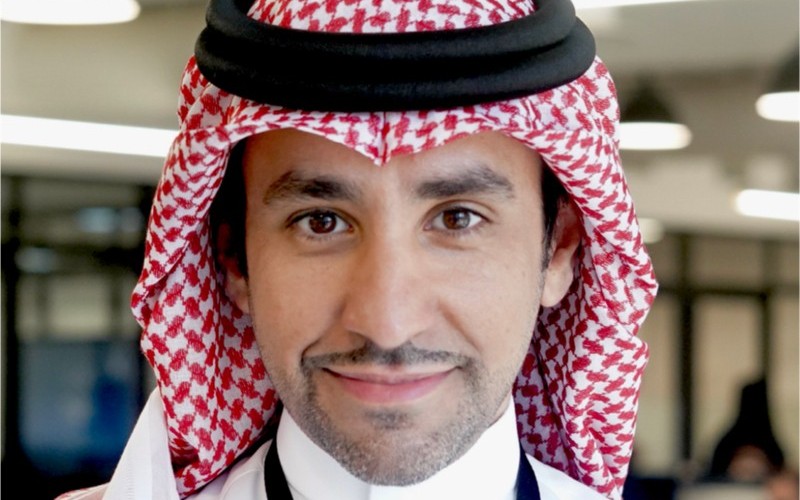One of the chief complaints against our beloved NHS – after difficulties in securing doctor’s appointments and operation waiting times, naturally – is its fragmented nature.
For all the goodwill in our sprawling Health Service, it often feels as though the right hand does not know what the left hand is doing – or, for that matter, any other part of the body.
Technology was supposed to fix this. But with a multitude of providers looking to integrate platforms across the various Trusts, and a mountain of red tape to negotiate, the efficiencies can be lost.
Health chiefs should perhaps look to Saudi Arabia for inspiration. Lean Business Services, a government-owned company based in Riyadh, has been operating for just five years – and yet it already covers more than 99% of facilities in the Kingdom.
“We’ve got quite an amazing reach,” chief medical officer Khaled Alrajhi tells me at the recent LEAP tech conference. “We have 20,000 facilities – this includes hospitals and clinics, but also labs and opticians or optometrist offices and pharmacies.
“In our citizens app, we have more than 27 million registered users, and more than 5m active users per month. They get services like booking appointments with primary care providers; if they have any private insurance, they can look at their coverage and their claims as well; they can look after their children’s vaccinations and track them and report them to school or travel.
“Parts of our National Health Information Exchange initiative are also feeding into the citizens portal – so you’d get whatever results you had in different hospitals or clinics in one place.”
I wonder if the UK’s privacy-first mindset, while an approach to be celebrated and defended at all costs, might work against it here – and also our fierce determination to promote healthy competition in the marketplace.
However Alrajhi says Lean is “careful not to monopolise the services”, adding: “Part of our work with regulators is to try to unify the platforms that deliver national scale services. But some of the services inside our platforms are not ours: other providers can come in and place their service in, for example, the citizens app – they’ll provide the service to citizens and we’ll just be the front-facing part.”
Saudi Arabia’s Vision 2030 is a series of economic and social reforms which is opening the country up to the world. One of the key focuses is empowerment of women to join the workforce and a relaxation of previously prohibitive laws in areas such as driving and dress.
The landscape has changed in the past couple of years due to the reforms, according to Alrajhi. “We’ve switched from one large, single provider in the Ministry of Health, which could choose to run directly all the hospitals in the Kingdom, to more of an accountable care organisations model which splits the country into several districts – somewhat similar to NHS Trusts, with some autonomy and accountability for their population. A lot of the budgeting and initiatives have shifted from treatment to prevention as well.”
Sehhaty is its main electronic platform for citizens and residents; Anat is the platform for empowering health practitioners; and Seha is an integrated electronic platform that provides services to health facilities.
The healthcare sector in the Kingdom is around 80% public and 20% private. As a key enabler of e-health innovation, Lean – which employs close to 300 people – looks to stimulate partnerships between the public and private sectors to the benefit of its citizens.
“We have initiatives related to diabetes, hypertension and obesity. These probably are the three biggest chronic conditions that we have measures to prevent complications for,” says Alrajhi. “Most of the regulators around the country are pushing providers to help work on these conditions really early so they can prevent complications going down the line.
“When we discuss things like preventative care, we discuss lifestyle changes: you’re not going to take a drug to prevent diabetes, you’re going to change your lifestyle, maybe exercise more, improve your diet. We use digital twins to risk stratify people: so if someone wants to, they can get their risk for diabetes stratified based on all the data points we have on them – height, weight, and family history if they wish.
“They can then get personalised advice about what they should maybe do to prevent this or that condition – some of the things are straightforward, exercise and diet, but there are some other conditions, especially ones that run in families, which you need to have screening or tests for early in life.
“If you don’t approach people before they get sick, you only know about it after they get sick. So the digital twins are kind of tools for us to help people figure out what the risks are.”
Speaking to people working in the NHS, there is a definite feeling that the UK is reactively treating people rather than proactively. Many would point to years of underinvestment – but if we continue to wait for people to get sick, the strain will only increase in years to come.


